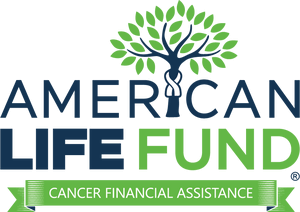Planning for the future is important, especially for individuals facing a serious or life-threatening illness. Estate planning guarantees that your life insurance policy, assets, and health care preferences are properly managed, providing peace of mind for you and your family members. However, financial burdens, including medical expenses, can make it difficult to focus on long-term planning.
A viatical settlement can provide financial relief by allowing you to sell your existing policy to a third-party buyer for a lump sum, offering immediate cash when it’s needed most. This option is particularly beneficial for individuals looking for ways to cover costs while maintaining financial independence.
Here we will review how estate planning and viatical settlements work together, allowing you to make informed decisions that protect your loved ones and maximize your policy’s face value.
What Is Estate Planning and Why Is It Important?
Estate planning is the process of organizing your finances, assets, and legal wishes to make sure they are handled according to your preferences after your passing. For ill individuals, having a clear estate plan can reduce stress for family members and prevent legal complications.
Components of estate planning include:
- A Will – Specifies how assets will be distributed and who will manage the estate.
- A Trust – Provides additional financial protections and control over assets.
- Power of Attorney – Grants a trusted person the authority to make financial or medical decisions on your behalf.
- Beneficiary Designations – Ensures that assets, including a life insurance policy, go directly to chosen recipients.
Without a structured estate plan, loved ones may face challenges related to estate taxes, legal disputes, or unexpected financial burdens. Taking proactive steps ensures that your legacy is protected, and your wishes are honored.
What Are Viatical Settlements and How Do They Work?
A viatical settlement allows individuals with a serious illness to sell their life insurance policy to a third-party buyer for a large, lump sum cash payment. This substantial amount is typically greater than the cash surrender value but less than the death benefit.
Here’s how the process works:
- Evaluation of Eligibility – The policyholder must have a life-threatening illness such as cancer or ALS.with a life expectancy of 24 months or less.
- Policy Assessment – The insurance company determines the policy’s face value, premium costs, and type of policy factor into the payout potential. and payout potential.
- Receiving an Offer – A life settlement provider or life settlement company presents a cash offer based on the policy’s worth.
- Accepting the Offer – The policyholder sells the insurance policy, and ownership transfers to the buyer, who assumes responsibility for premium payments.
- Receiving the Lump Sum – The seller receives immediate funds to use as they see fit needed – whether for medical expenses, debt relief, or enhancing quality of life.
Many life insurance companies only allow policyholders to surrender their existing policy for its cash surrender value, which is often significantly lower than what a viatical settlement can provide. By working with a viatical settlement provider policyholders can unlock a higher payout, offering much-needed financial flexibility during a difficult time.
How Do Viatical Settlements Fit into Estate Planning?
When creating an estate plan, one of the biggest concerns is making sure that loved ones are financially secure. However, if you’re facing a life-threatening illness, unexpected medical expenses can quickly drain savings and impact the assets you intended to leave behind.
A viatical settlement can be used to preserve your estate and protect your beneficiaries by:
- Converting your life insurance policy into an immediate asset rather than allowing it to lapse or surrendering it for a low cash surrender value.
- Helping cover estate-related costs such as estate taxes, legal fees, and outstanding debts, so your loved ones aren’t left with financial burdens.
- Providing financial flexibility, allowing you to use your funds however you see fit – whether for medical care, paying off a mortgage, or gifting money to family members in advance.
Many policyholders don’t realize that their life insurance policy is an asset that can be leveraged during their lifetime. Instead of letting an insurance company dictate its value, a life settlement provider allows you to take control of your policy’s worth and make decisions that align with your estate planning goals.
Can You Sell Any Type of Life Insurance Policy in a Viatical Settlement?
Not all life insurance policies qualify for a viatical settlement, but many do. Understanding which types of policies are eligible can help you determine whether this option is right for you.
Types of Life Insurance Policies That Qualify
Most life settlement providers accept the following:
- Universal Life Insurance Policies – These policies build cash value over time, making them attractive for viatical settlements.
- Whole Life Insurance Policies – Since these policies have a guaranteed death benefit and an investment component, they can often be sold for a higher payout.
- Term Life Insurance Policies – Many assume that term life insurance isn’t eligible, but it can be sold if it’s convertible into a permanent policy before settlement.
- Group Life Insurance Policies – Some workplace or association-based policies may qualify, though they typically need to be converted to an individual policy first.
Policy Factors That Impact Eligibility
Even if your insurance policy falls into one of the above categories, certain factors will determine whether it qualifies:
- Policy Face Value – Most viatical settlement providers require a minimum face value of $200,000 or more.
- Premium Payments – Policies with manageable premium costs are more attractive to buyers, but isn’t always a requirement.
- Insured’s Age and Health Status – Eligibility is primarily based on the insured’s life expectancy. This is why you must be diagnosed with a serious illness or be 75 years of age or older in order to qualify., with most settlements available for individuals with 24 months or less to live.
What Are the Benefits of a Viatical Settlement?
A viatical settlement provides more than just financial relief – it offers policyholders control, flexibility, and peace of mind during a difficult time. Here are some benefits:
Immediate Access to Cash
Unlike waiting for a death benefit to be paid to beneficiaries, a viatical settlement allows policyholders to access funds now. This can be used for:
- Medical expenses, including treatments, medications, and in-home care.
- Daily living costs, such as rent, mortgage payments, or utility bills.
- Bucket list experiences to enjoy time with loved ones.
No Restrictions on How Funds Are Used
Unlike some insurance payouts, viatical settlements provide a lump sum payment with no spending restrictions. Whether you need to:
- Pay off debt
- Support family members, or
- Fund alternative treatments
- Take time off work or retire early,
Eliminates Costly Premium Payments
Continuing to pay life insurance policy premiums can be a financial strain. By selling the policy, the new owner assumes responsibility for premium payments, freeing up more cash for the policyholder.
Higher Payout Than a Cash Surrender Value
Many insurance companies only offer a fraction of a policy’s worth if it’s surrendered. A viatical settlement provider typically offers 4 to 10 times more than the cash surrender value, maximizing the policy’s financial potential.
Provides Financial Flexibility for Estate Planning
A viatical settlement allows policyholders to:
- Settle estate debts, including estate taxes and legal fees.
- Gift money to family members in advance.
- Avoid financial strain on beneficiaries, guaranteeing a smoother transition of assets.
For those facing a life-threatening illness, a viatical settlement is not just about money – it’s about taking control of your financial future and making choices that support both your well-being and your loved ones.
How Do You Start the Viatical Settlement Process?
Understanding a viatical settlement may seem overwhelming, but the process is straightforward when working with a reputable viatical settlement provider or life settlement broker. Here’s a step-by-step guide:
1. Determine Your Eligibility
To qualify for a viatical settlement, you typically need:
- To be diagnosed with a life-threatening illness
- A life insurance policy with a face value of at least $200,000.
- A life policy that is at least two years old
If you are unsure, a life settlement company can assess your policy and determine your options.
2. Gather Necessary Documents
Most viatical settlement providers require:
- A copy of your insurance policy which they can request on your behalf
- Medical records confirming your health status that can also be requested on your behalf
3. Receive an Offer from a Settlement Provider
Once your policy is reviewed, a viatical settlement provider will present a lump sum, cash offer based on factors like:
- Your policy’s face value
- The cost of future premium payments
- Your health condition and life expectancy
Offers typically range between 30% and 70% of the death benefit, significantly more than what an insurance company would offer for surrendering the policy.
4. Accept the Offer and Finalize the Agreement
If you accept an offer, you will:
- Sign legal documents transferring ownership of the policy to the buyer.
- No longer be responsible for premium payments.
- Receive your lump sum payment
5. Use Your Funds However You Choose
Your viatical settlement funds can be used for anything- medical bills, estate planning, debt relief, or even personal experiences with loved ones.
Speak with American Life Fund to take back control of your financial situation now!
What Are the Risks and Considerations of a Viatical Settlement?
While viatical settlements provide financial relief, it is important to understand potential risks before making a decision. Selling a life insurance policy is a significant step, and policyholders should weigh the benefits against possible drawbacks.
Loss of Life Insurance Coverage
Once a policy is sold, the policy owner no longer has access to its death benefit. This means:
- Beneficiaries will not receive the payout upon the insured’s death.
- If financial circumstances change, there is no option to reinstate the policy.
Tax Implications
While viatical settlements are generally tax-free for individuals with a serious illness, it is important to consult a financial advisor or tax professional to:
- Understand potential income tax obligations.
- Plan for how the lump sum may impact overall finances.
Privacy Considerations
Selling a life insurance policy involves sharing medical and financial records with a life settlement provider. Policyholders should work with a reputable viatical settlement company that follows industry regulations and guarantees confidentiality.
State Regulations Vary
Each state has its own laws regarding viatical settlements, including licensing requirements for life settlement brokers and life settlement providers. It is important to:
- Research state regulations or consult with a licensed professional.
- Verify that the viatical settlement provider operates legally in your state.
Impact on Medicaid or Government Benefits
Receiving a lump sum payment from a viatical settlement could affect eligibility for government assistance programs such as:
- Medicaid
- Supplemental Security Income (SSI)
If you rely on these benefits, it is important to discuss the implications with a financial or legal professional before proceeding.
Working with a Reputable Provider
Not all life settlement companies operate with the same level of transparency. To protect your interests:
- Choose a licensed viatical settlement provider or life settlement business.
- Review all contract terms carefully.
- Ask questions about fees, timelines, and payment.
While viatical settlements offer financial flexibility and relief, taking the time to understand the risks helps make sure that policyholders make informed decisions that align with their needs.
Take Control of Your Financial Future with a Viatical Settlement
If you are facing a serious illness, financial concerns should not add to your burden. A viatical settlement allows you to access funds from your life insurance policy when you need them most, providing immediate financial relief for medical expenses, daily living costs, or any other financial priorities. At American Life Fund, we specialize in helping individuals unlock the value of their life insurance policies through a simple and stress-free process.
With an instant estimate tool, see if you qualify with no cost or obligation. Our team is here to provide expert guidance, answer all your questions, and make sure you receive the highest possible payout. There are no third-party fees, no hidden costs, and no pressure – just straightforward support to help you make the best financial decision for you and your loved ones.
Find out if you qualify for a viatical settlement today! Contact American Life Fund to get started with a free estimate. Call (877) 261-0632 or email info@americanlifefund.com for more information.





